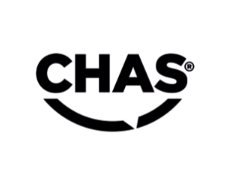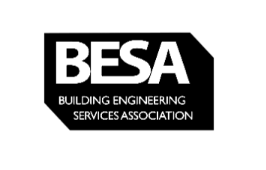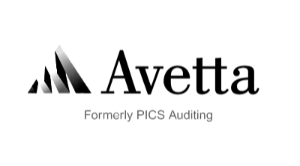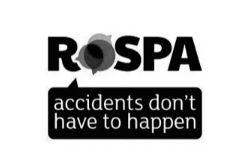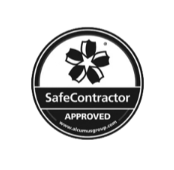Whatever your workspace or commercial setting, big or small, it’s essential that floors are kept clean and hazard-free for staff and customers.
Spills, slippery surfaces, scuffs and germs can cause accidents, illness and reduce the durability of your floor surface if not kept in check with the right floor cleaning products, application and technique.
You may choose to tackle floor cleaning yourself, appoint internal employees or seek out the floor cleaning services of a professional commercial cleaning team such as phs. As the leading provider of hygiene services in the UK, we can handle all your floorcare cleaning need, and provide specialist cleaning methods and a tailored service schedule.
But however you choose to tackle them, one thing’s for sure: floors need to be cleaned properly, safely and thoroughly – and it can be very time-consuming.
With so many floor surfaces now available to consumers and businesses, along with floor cleaning products and equipment – from simple floor scrubbers and brushes, to steamers, to state-of-the-art commercial cleaning machines – it’s easy to get floored before you’ve even started.
So, we’ve put together some of the most common ones with expert advice on how you can keep your floors clean and safe.
Stone Floor Cleaning
The key to stone floor cleaning is to bear in mind that stone is incredibly porous. This means you should apply a commercial sealer to prevent fluids draining into the floor.
- Use a wool pad to apply a thin layer of acrylic floor finish, then apply a second layer for good measure.
- Simply mop with an all-purpose floor cleaner.
- To ensure your floor is always protected, you should occasionally strip off the sealer, rinse the floor off and re-apply it.
Please note, while a floor steamer is great for cleaning some surfaces to get rid of germs, mould and fungus (vinyl, linoleum, ceramic, porcelain, and some hardwood and laminate flooring), you should avoid using on porous floor surfaces such as natural stone, limestone, marble or unsealed hardwood. To be safe, always check the manufacturer’s guidelines first.
Wooden Floor Cleaning
If you have a large amount of wooden flooring to look after, it might be worth investing in a wood floor cleaning machine. This would help you save time, and is ideal for areas that require a daily clean.
- First, use a vacuum cleaner or brush to remove all dust and debris from the wooden floorboards.
- Use a microfibre or floor cleaning mop treated with a dusting agent to pick up the tiny dust, hairs and other contaminants.
- For a deeper clean, occasionally follow this up by mopping the floor with 4.5 litres of water mixed with around 240ml of vinegar.
- You also might want to consider specialist wood floor cleaning products or a wood floor cleaning kit with a ready-to-use formula that blitzes dirt and grime, and allows the floor to dry quickly without leaving a residue behind.
Hard Floor Cleaning
Hard floors require the same cleaning method as wooden floors. The only difference is that wooden floors tend to require more vacuuming than hard floor cleaning.
- First, use a vacuum cleaner or brush to remove all dust and debris from the hard floor.
- Use a microfibre or a mop treated with a dusting agent to pick up the tiny dust, hairs and other contaminants.
- For a deeper clean, occasionally follow this up by mopping the floor with 4.5 litres of water mixed with around 240ml of vinegar.
- If you have a very large area to keep clean and speed is of the essence, it might be worth investing in a hard floor cleaning machine, with special heads and detergent, to give your floors a streak-free finish.
Limestone Floor Cleaning
Limestone floors are soft and porous, and therefore they pick up stains very easily. They should always be treated with a limestone-specific sealer in order to protect from marks.
- Use a vacuum cleaner to remove all dirt and dust.
- Scrub the floor thoroughly using a pH-neutral stone cleanser. You should be sure to use a limestone-specific cleanser and never use normal soap or all-purpose cleaner for limestone.
- Use a small brush such as a toothbrush to scrub individual stains. Stubborn ones can usually be removed with a special stone cleaner specifically made for limestone, if necessary.
- Rinse the floor thoroughly with distilled or soft water, then run dry immediately. This is crucial as hard water can seriously damage limestone flooring, as can leaving water sitting around on it for too long.
- Test your floor’s seal by leaving a drop of water on it for 5-10 minutes. If the water appears to absorb into the floor or leaves a dark spot behind, you will need to seal it again.
Slate Floor Cleaning
Before cleaning your slate floor, you should ensure it has been sealed. As long as you keep the slate sealed and strip and reseal it from time to time, mopping with an all-purpose cleaner should work wonders.
- Simply mop with an all-purpose floor cleaner.
- To ensure your floor is always protected you should occasionally strip off the sealer, rinse the floor off and re-apply it.
Marble Floor Cleaning
Marble floor can also be very porous when not polished, so make sure you seal it with a commercial sealer.
- From here, use water and general all-purpose cleaner to mop down the entire floor.
- Be sure to strip the sealer, rinse the floor and reapply from time to time. If using a paste sealer, we would recommend testing it on a small corner of the floor first to be 100% sure it won’t lead to any discolouration or floor damage.
Laminate Floor Cleaning
Laminate floor is very easy to clean and look after, it just requires a regular vacuum clean or brush, and an occasional mop with floor cleaner.
- First, use steel wool to scrub down laminate flooring and remove any marks or mess that’s stuck to the floor.
- From here, use a general all-purpose cleaner or polish to mop the floor.
- It is best to keep it simple with laminate flooring as many more advanced products such as solvent-based cleaners can damage it, and even very hot water can be a bad idea.
Ceramic Floor Cleaning
If they are glazed, ceramic floor can usually be mopped with a simple mixture of warm water and all-purpose cleaner. If ceramic tiles aren’t glazed, they are very porous and should be treated similarly to stone flooring.
- Use a wool pad to apply a thin layer of acrylic floor finish, then apply a second layer for good measure.
- Simply mop with all-purpose floor cleaner
Carpet Cleaning
Although they still have their place in many spaces, and provide more comfort and cosiness than other harder floor surfaces, carpets are notorious for keeping clean. However, with a little effort, you can keep them clean and looking their best.
- It’s important to regularly vacuum a carpet to prevent the build-up of dust, dirt and hair between the fibres.
- Even with regular vacuuming, carpets can look dull and filthy in high footfall areas, so invest in a good quality carpet cleaner to remove stains.
- With spillages, carefully scrape or blot away as soon as possible after before applying a specialist carpet cleaning product. Do not rub too hard or use very hot water as this can make the stain worse.
- A professional carpet clean every now and then will help keep your floor pristeen.
Industrial Floor Cleaning/Commercial Floor Cleaning
Industrial floor cleaning usually involves the same steps as above, but on a much larger scale. One commercial building could even potentially contain all of the floor types listed above, each with huge surface areas.
As a result, industrial floor cleaning machines and professionally trained technicians are usually required. Industrial cleaners will have in-depth knowledge of cleaning methods and floor cleaning products, allowing them to provide an efficient service.
Don’t forget, phs can handle all your floorcare needs to keep your surfaces squeaky clean.
Work with phs
As the leading provider of hygiene services in the UK, phs can handle all your floorcare needs. Providing specialist cleaning methods and a tailored service schedule.






























